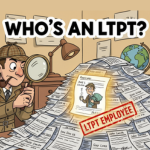Long-Term, Part-Time Employee Administration
January 15, 2026
Long-term, Part-time employees became eligible for the first time in 2024 for for-profit corporations and in 2025 for nonprofit corporations. 403(b) plan sponsors’ auditors will request backup for LTPT employee identification, eligibility, and their effective opportunity to defer during next year’s audits. This blog will explain the rules and the best practices for employers challenged … Continued
Do You Have an RFP Template for a 401(k) | 403(b) Plan Audit?
December 17, 2025
Do You Have a Template for a Request for Proposal (RFP) for a 401(k)/403(b) Plan? Almost every time I present an educational seminar, at least one attendee asks me if I have a template for a retirement plan audit RFP. After discussing the importance of selecting a quality plan auditor and providing a list of … Continued
Roth Catch-up Mandate Compliance and Deemed Election Examples
December 11, 2025
This blog was updated 12.19.2025 with enhanced examples. Background Effective January 1, 2026, catch-up eligible participants who are High Earners must make catch-up contributions on the Roth basis. The industry has been using the term Highly Paid Individuals, so we will use both terms for the sake of clarity and consistency with other published articles. … Continued
SECURE 2.0: Automatic Enrollment Mandate
November 25, 2025
In Summary Applicability and Exemptions: Effective for plan years after December 31, 2024, new plans established after December 29, 2022, must implement automatic enrollment; however, exemptions apply to “grandfathered” pre-enactment plans, businesses with 10 or fewer employees, companies in business for less than three years, and governmental, church, or SIMPLE plans. Contribution and Escalation Mechanics: … Continued
From the Diamond to the Desk: 2026 Retirement Plan Limits Step Up to the Plate
November 19, 2025
Much like our celebratory moment on the field last summer — when our firm’s softball team stepped up to the plate and swung for the fences to clinch the 2025 local accounting-firm championship — retirement plan limits are stepping up in 2026 to keep the retirement-plan game moving forward. The Internal Revenue Service has announced … Continued
Catch the Catch-Up Final Regulations Before They Catch You Off-Guard
November 13, 2025
In Summary Mandatory Roth Contributions for High Earners: Effective January 1, 2026, “High Earners” (defined as participants with prior-year FICA wages exceeding $150,000) are required to make all catch-up contributions—including the new “Super Catch-Up” for participants aged 60–63—on a Roth (after-tax) basis. Exclusions and Plan Limitations: The mandate strictly applies to employees with W-2 FICA … Continued
Excess Allocations vs. Inadvertent Overpayments After SECURE 2.0
October 24, 2025
In Summary Common Errors and Overpayments: Due to the complexity of retirement plan rules, errors are common, resulting in excess amounts (operational failures). If these excess funds are distributed to a participant, it becomes an overpayment failure, which can stem from issues like inaccurate testing, incorrect vesting, or ineligible distributions. Correction Relief for Inadvertent Overpayments: … Continued
When Do Retirement Plans Need a Financial Statement Audit?
October 14, 2025
In Summary The 80-120 Rule for Audit Requirement: A retirement plan’s need for an annual audit is determined by counting participants with account balances on the first day of the plan year. The 80-120 rule is an exception that allows a plan with 80 to 120 participants to file as a small plan (no audit) … Continued
Auditing Merged Assets from Unaudited Retirement Plans
October 01, 2025
In Summary Risk of Tainted Assets: Directly merging plan assets preserves their source classification, creating a risk that previous qualification errors in the merged plan (resulting in “tainted assets”) could affect the audited financial statements of the successor plan. Rollovers Eliminate Risk: The optimal way to avoid tainted assets is by having participants conduct rollovers … Continued
January 1 Plan Mergers and the One-Day Audit Controversy
September 22, 2025
In Summary Final Form 5500 Filing, Asset Distribution, and Legal Title: A plan’s final Form 5500 filing obligation is triggered not by the effective date of termination, but by the complete distribution of all assets. In a merger, the final filing is determined by the date the legal title of the assets transfers to the … Continued









